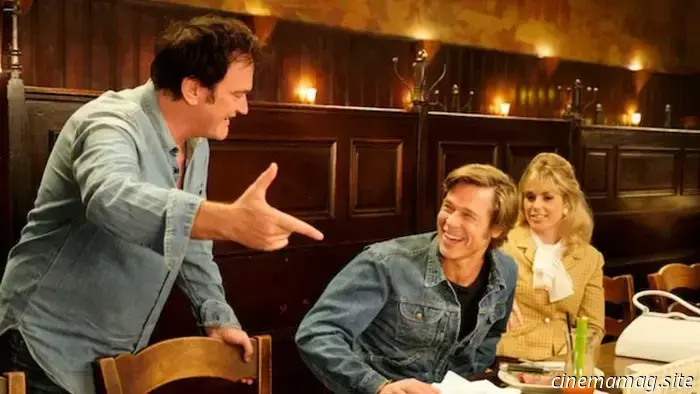
Is the David Fincher offshoot of Once Upon a Time in Hollywood the most bizarre Quentin Tarantino project?
When The Playlist reported last week that David Fincher would be directing a spin-off of Quentin Tarantino’s Once Upon a Time in Hollywood, it initially sounded like an April Fool’s prank. The project, written by Tarantino and featuring Brad Pitt reprising his role as the charismatic but deadly stuntman Cliff Booth, raises questions.
Tarantino is noted for his meticulous and distinctive directing style, often demanding substantial creative oversight of his work. Why would he transfer a character he clearly cherishes, having featured him in both the 2019 film and its more detailed 2021 novelization?
As more information surfaced, the project appeared increasingly legitimate. Shortly after the Playlist article, Sean Fennessey of The Ringer shared on the Big Picture podcast that he had consulted his Tarantino sources and learned that the film shouldn’t be regarded as a sequel but rather as a connected follow-up to the original.
Fennessey likened it to two adaptations of Raymond Chandler's work: the 1946 film The Big Sleep and the 1975 Farewell, My Lovely, both featuring the character Phillip Marlowe — played by Humphrey Bogart in the former and Robert Mitchum in the latter. He also mentioned that the new film would take place in 1977, eight years after Once Upon a Time in Hollywood.
Setting a movie eight years after its predecessor with the same actor in the same award-winning role and the same writer seems more like a sequel than a 1975 film created by a different team and released a generation later. However, this is a discussion for when the movie releases. The more immediate question is why Tarantino would entrust his character to another filmmaker.
The answer may lie in his legacy.
How The Movie Critic Relates to Once Upon a Time in Hollywood
Brad Pitt plays Cliff Booth in Once Upon a Time in Hollywood, the Tarantino classic that is getting a spin-off directed by David Fincher. – Credit: Sony
Tarantino has repeatedly stated that his next film, which will be his tenth, will also be his last. He had previously scrapped plans for what was expected to be his final film, titled The Movie Critic, in April 2024. According to The Hollywood Reporter, Pitt had been in discussions to star in The Movie Critic, again reprising the role of Cliff Booth.
The Playlist notes that the script for The Movie Critic appears to have evolved into the project that Fincher will now oversee.
By passing the script to Fincher, Tarantino gains creative freedom and an opportunity to pursue other ventures for his final film, while entrusting a character he values to a director he respects and has long admired.
If Fincher's film fails — which seems unlikely given the talent involved — Tarantino can still enjoy watching fans and critics lament the version that could have been if he had directed it himself.
The Playlist also mentions that Netflix, which acquired the project, “may have paid over $20 million for Tarantino’s screenplay.”
This is a situation that benefits all parties involved.
Tarantino holds Fincher in high regard — the director of films including the Pitt-starring Fight Club and the acclaimed Zodiac — but does not see him as a rival, as he expressed during a 2009 interview with Charlie Rose while promoting his then-recently released Inglorious Basterds.
A notable quote encapsulates both his admiration for Fincher and the pressures he feels as a filmmaker:
“One of the most talented filmmakers of my generation is David Fincher, but he’s not in the same category as me because I’m a writer-director, and that makes it different,” Tarantino explained to Rose.
“It’s tough to start from a blank page every time. You are at the base of Mount Everest each time, and your previous work doesn’t help you; it can weigh heavily on you. You end up making fewer films, and it’s much easier to revise or work with existing scripts to produce more films.”
All of Tarantino's movies—apart from 1997’s Jackie Brown, which was based on Elmore Leonard’s novel Rum Punch—originated from original stories that he wrote himself, except for 1994’s Pulp Fiction, which he co-wrote with Roger Avary, a former coworker from a video store. (Today, Tarantino and Avary co-host the Video Archives Podcast, reminiscing about their time as video clerks in South Bay and recommending films.)
Despite his strong opinions and adherence to his vision, Tarantino seems to pursue collaborations with creators he trusts and respects, like Avary and Robert Rodriguez, with whom he collaborated on 1996’s From Dusk till Dawn (which Rodriguez directed while Tarantino starred and wrote the script based on an idea by Robert Kurtzman) and 2007’s Grindhouse (which included the films Planet Terror and Death Proof— the first written and directed by Rodriguez and the

Other articles
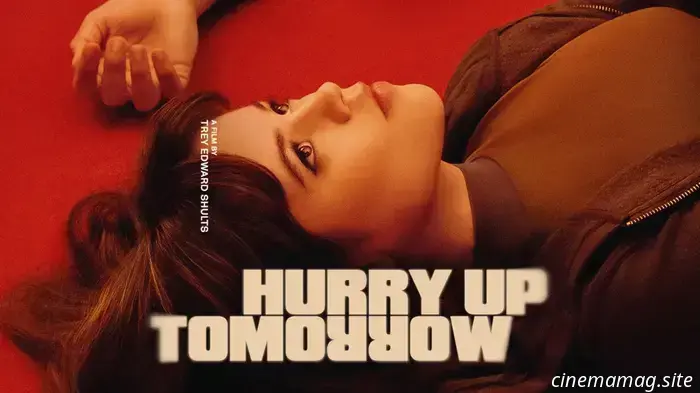 The posters for Hurry Up Tomorrow showcase Abel Tesfaye, Jenna Ortega, and Barry Keoghan.
Lionsgate has released three character posters for Trey Edward Shults' psychological thriller Hurry Up Tomorrow, showcasing stars Abel Tesfaye, Jenna Ortega, and Barry Keoghan; check them out here… SEE ALSO: Watch the trailer for Hurry Up Tomorrow A musician struggling with insomnia embarks on a journey with a stranger who starts to uncover the […]
The posters for Hurry Up Tomorrow showcase Abel Tesfaye, Jenna Ortega, and Barry Keoghan.
Lionsgate has released three character posters for Trey Edward Shults' psychological thriller Hurry Up Tomorrow, showcasing stars Abel Tesfaye, Jenna Ortega, and Barry Keoghan; check them out here… SEE ALSO: Watch the trailer for Hurry Up Tomorrow A musician struggling with insomnia embarks on a journey with a stranger who starts to uncover the […]
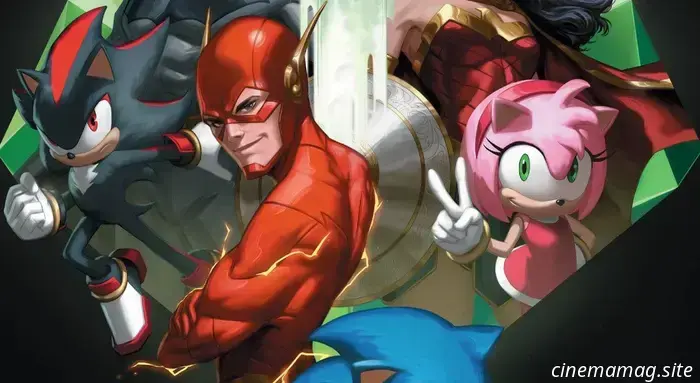 DC x Sonic the Hedgehog #2 - Preview of the Comic Book
DC x Sonic the Hedgehog #2 is set to be released this Wednesday, and you can view the official preview of the ongoing crossover below, provided by DC Comics… The Justice League has some surprising new allies: Sonic the Hedgehog and his companions! Together, they battle the invading armies from Apokolips to rescue Sonic’s world from […]
DC x Sonic the Hedgehog #2 - Preview of the Comic Book
DC x Sonic the Hedgehog #2 is set to be released this Wednesday, and you can view the official preview of the ongoing crossover below, provided by DC Comics… The Justice League has some surprising new allies: Sonic the Hedgehog and his companions! Together, they battle the invading armies from Apokolips to rescue Sonic’s world from […]
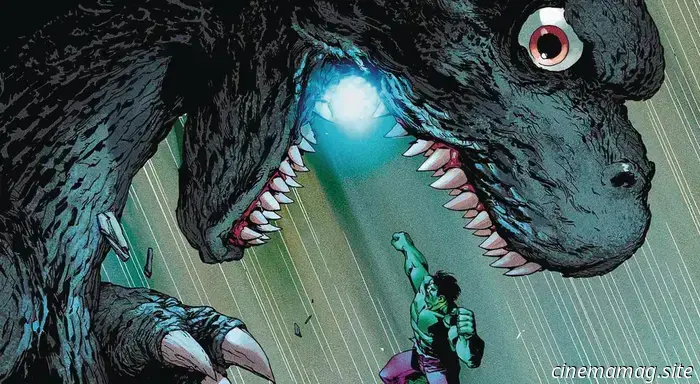 Godzilla vs. Hulk #1 - Preview of the Comic Book
Following his confrontation with the Fantastic Four, the King of the Monsters persistently wreaks havoc throughout the Marvel Universe next week with the debut of Godzilla vs. Hulk #1. Check out the official preview from Marvel Comics below for an early look at the issue… ROUND TWO: AGAINST THE INCREDIBLE HULK! General Ross has zero patience […]
Godzilla vs. Hulk #1 - Preview of the Comic Book
Following his confrontation with the Fantastic Four, the King of the Monsters persistently wreaks havoc throughout the Marvel Universe next week with the debut of Godzilla vs. Hulk #1. Check out the official preview from Marvel Comics below for an early look at the issue… ROUND TWO: AGAINST THE INCREDIBLE HULK! General Ross has zero patience […]
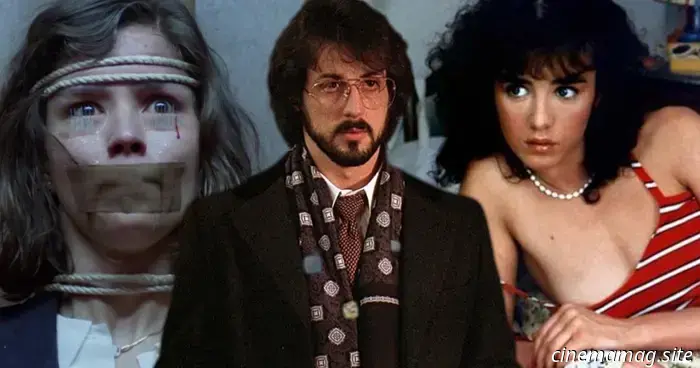 10 Amazing Overlooked Treasures of the 1980s
We explore ten fantastic overlooked treasures from the 1980s… How many of these have you watched? The 1980s was a diverse mix of films. Blockbusters and franchises started to gain significant popularity. The rise of home video provided an opportunity for movies to thrive outside of theaters as well. Film enthusiasts have consistently gathered in […]
10 Amazing Overlooked Treasures of the 1980s
We explore ten fantastic overlooked treasures from the 1980s… How many of these have you watched? The 1980s was a diverse mix of films. Blockbusters and franchises started to gain significant popularity. The rise of home video provided an opportunity for movies to thrive outside of theaters as well. Film enthusiasts have consistently gathered in […]
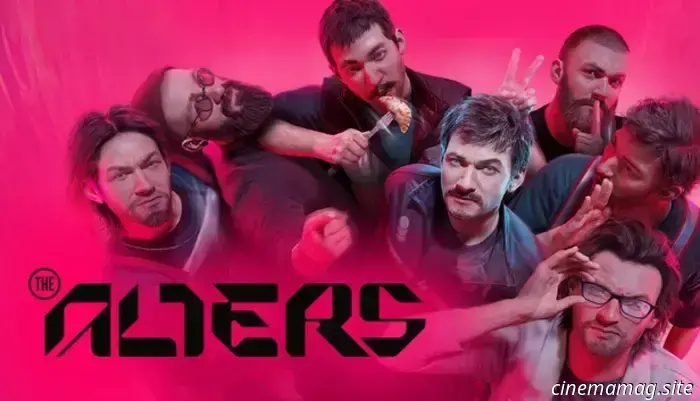 Sci-fi survival game The Alters is set to have a physical release in June.
Silver Lining Interactive and 11 bit studios have revealed that they will launch a physical version of the emotionally impactful sci-fi survival adventure, The Alters. PC players can buy this Signature Edition on June 13th, coinciding with the game's digital release, while physical editions for PlayStation 5 and Xbox Series X will be available on the 18th.
Sci-fi survival game The Alters is set to have a physical release in June.
Silver Lining Interactive and 11 bit studios have revealed that they will launch a physical version of the emotionally impactful sci-fi survival adventure, The Alters. PC players can buy this Signature Edition on June 13th, coinciding with the game's digital release, while physical editions for PlayStation 5 and Xbox Series X will be available on the 18th.
 12 Oscar Winners Who Began Their Careers in Sitcoms - MovieMaker Magazine
Don't mention that to these 12 Oscar winners who began their careers in sitcoms.
12 Oscar Winners Who Began Their Careers in Sitcoms - MovieMaker Magazine
Don't mention that to these 12 Oscar winners who began their careers in sitcoms.
Is the David Fincher offshoot of Once Upon a Time in Hollywood the most bizarre Quentin Tarantino project?
Is the David Fincher offshoot of Once Upon a Time in Hollywood, featuring Brad Pitt as Cliff Booth, the most unusual Quentin Tarantino project?
